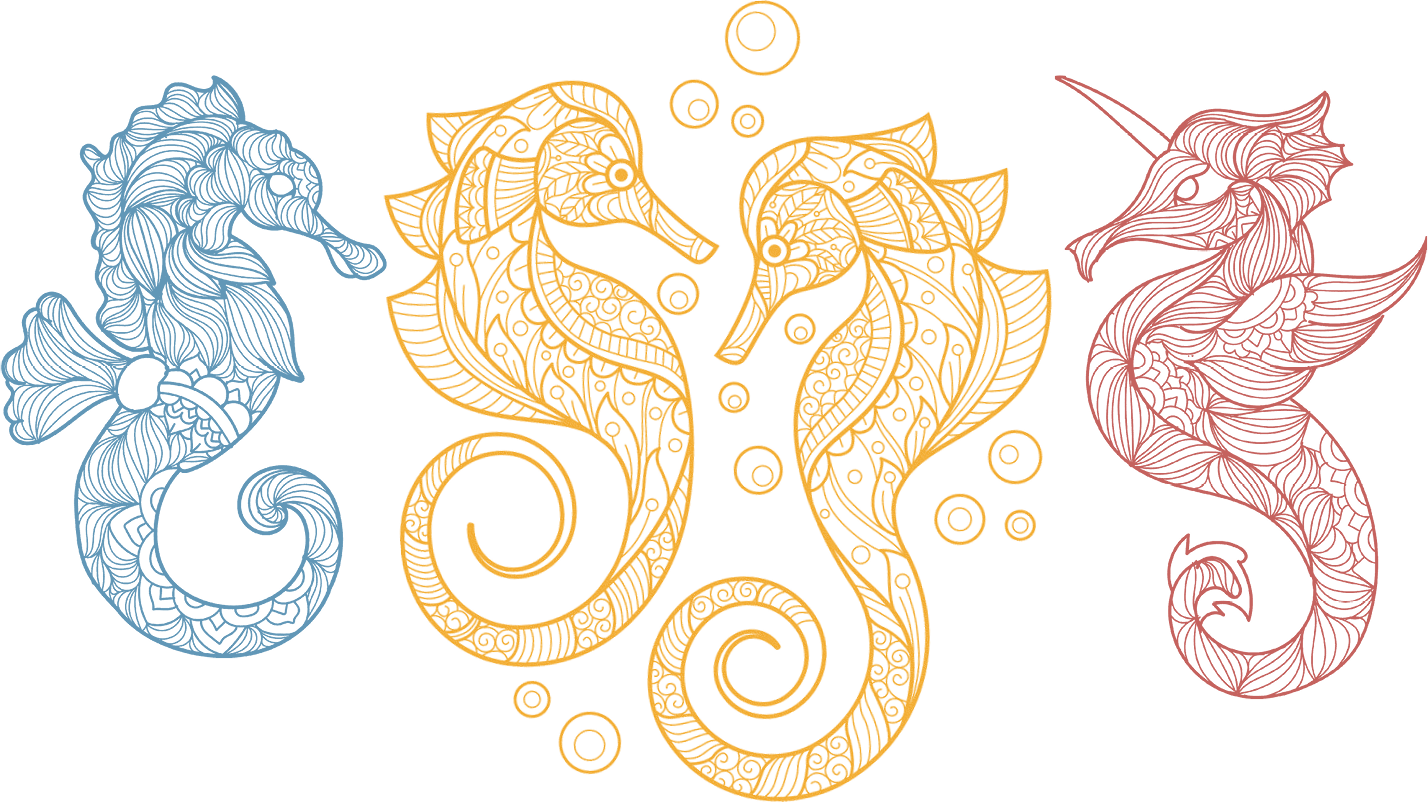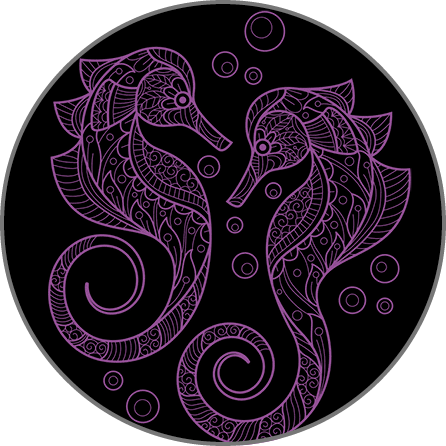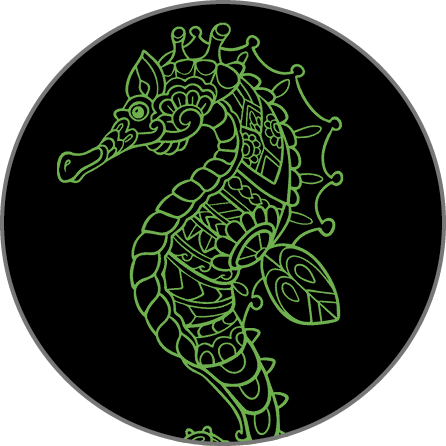Sea Horse Mandala Animal Art [11]
![]() A Granite Bay Design Microsite: Animal Mandala
A Granite Bay Design Microsite: Animal Mandala
The Sea Horse


The Sea Horse in Greek Mythology
In Greek mythology, the seahorse held a place of great significance, deeply intertwined with the power and dominion of Poseidon, the god of the sea. These mythical creatures, often depicted as pulling Poseidon’s chariot, symbolized strength, power, and the untamed forces of the ocean. Their association with the sea god also connected them to themes of control, mastery, and the awe-inspiring nature of the watery depths. The seahorse’s unique appearance, with its horse-like head and fish-like body, further enhanced its mythical status, making it a creature of both land and sea, embodying a unique blend of terrestrial and aquatic power.
![]()

The Sea Horse in Chinese Culture
In Chinese culture, seahorses hold a significant place, often revered as symbols of good fortune, particularly for those who venture out to sea. They are believed to bring luck, longevity, and even fertility. Furthermore, seahorses are incorporated into traditional Chinese medicine, where they are thought to possess healing properties and the ability to restore balance within the body. Their unique appearance, often likened to miniature dragons of the sea, adds to their mystique and cultural importance.

The Sea Horse in Philippines Folklore
In Philippine folklore, seahorses are revered as protectors of sailors, guiding them safely through treacherous waters and shielding them from the perils of the sea. 1 These mythical creatures are believed to possess the power to ward off evil spirits and bring good fortune to those who venture out onto the open sea. 1 The seahorse’s unique and otherworldly appearance, with its horse-like head and fish-like body, adds to its mystique and its role in Philippine maritime folklore.

